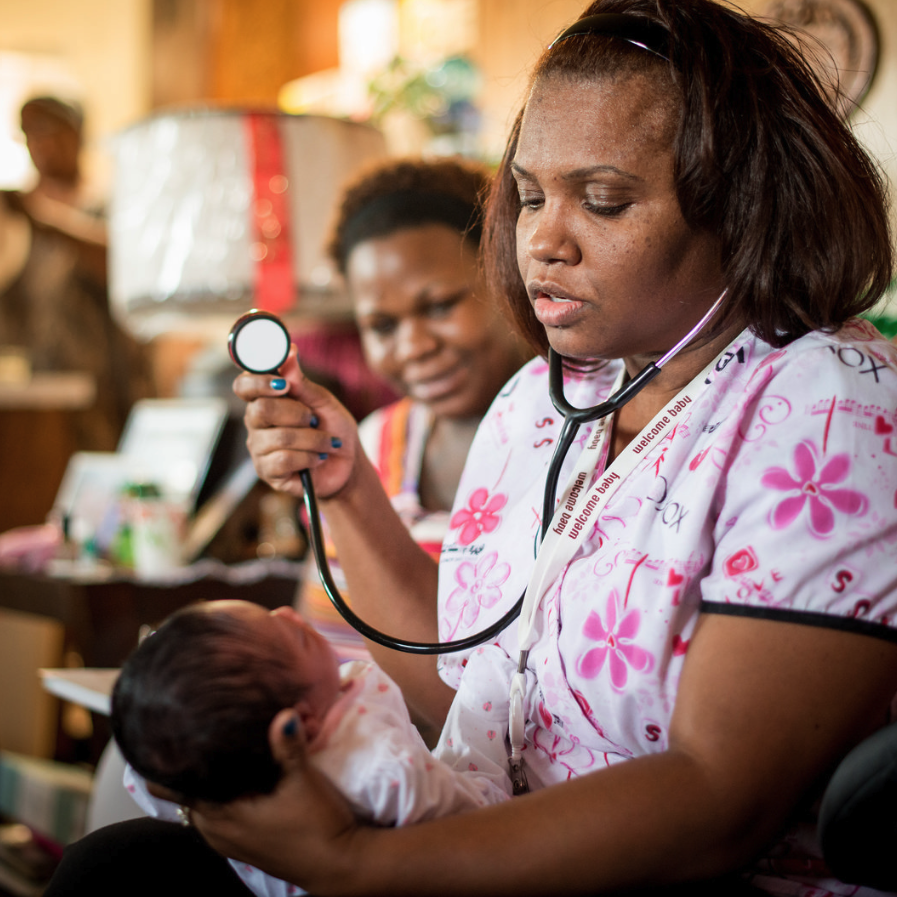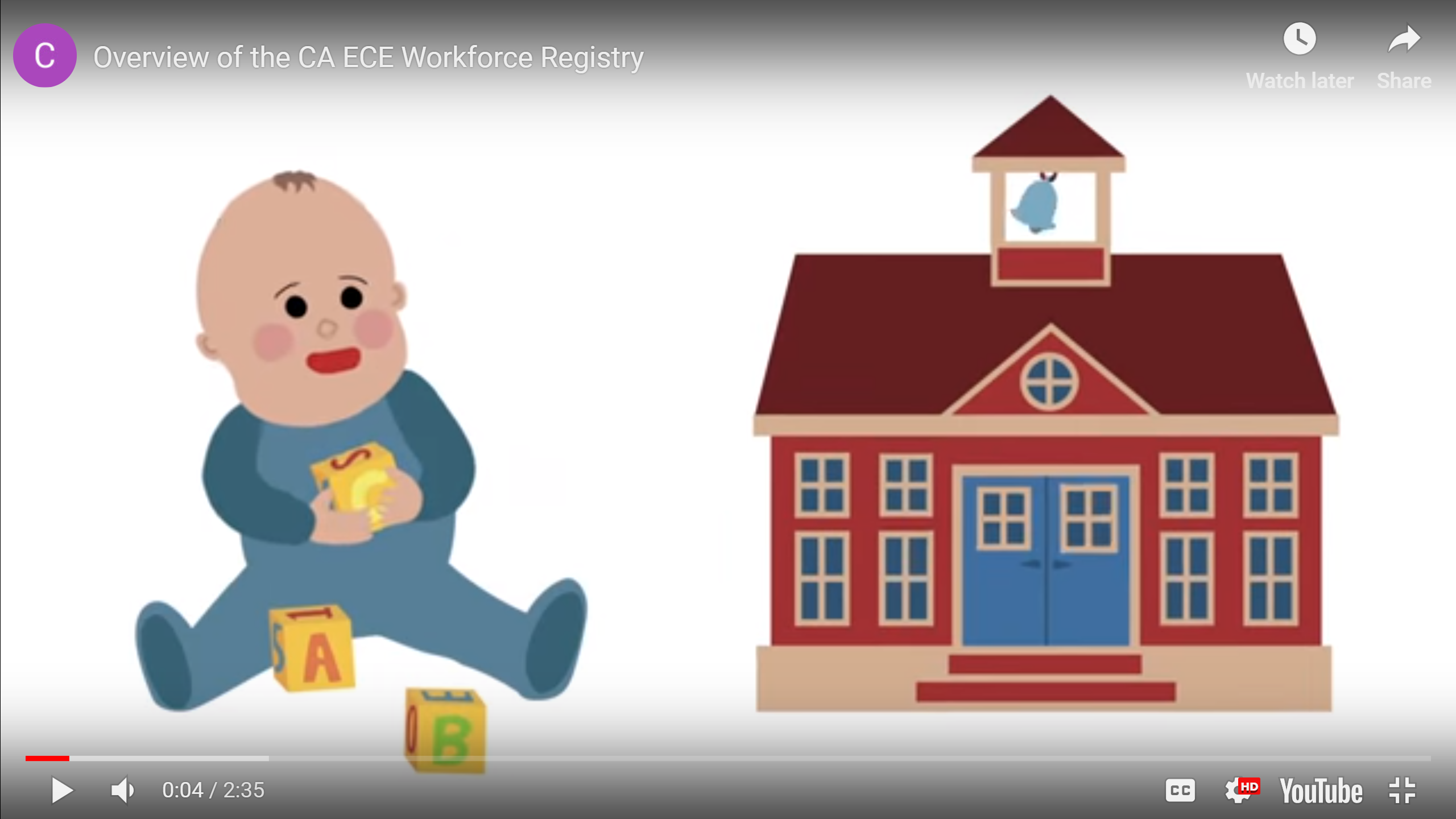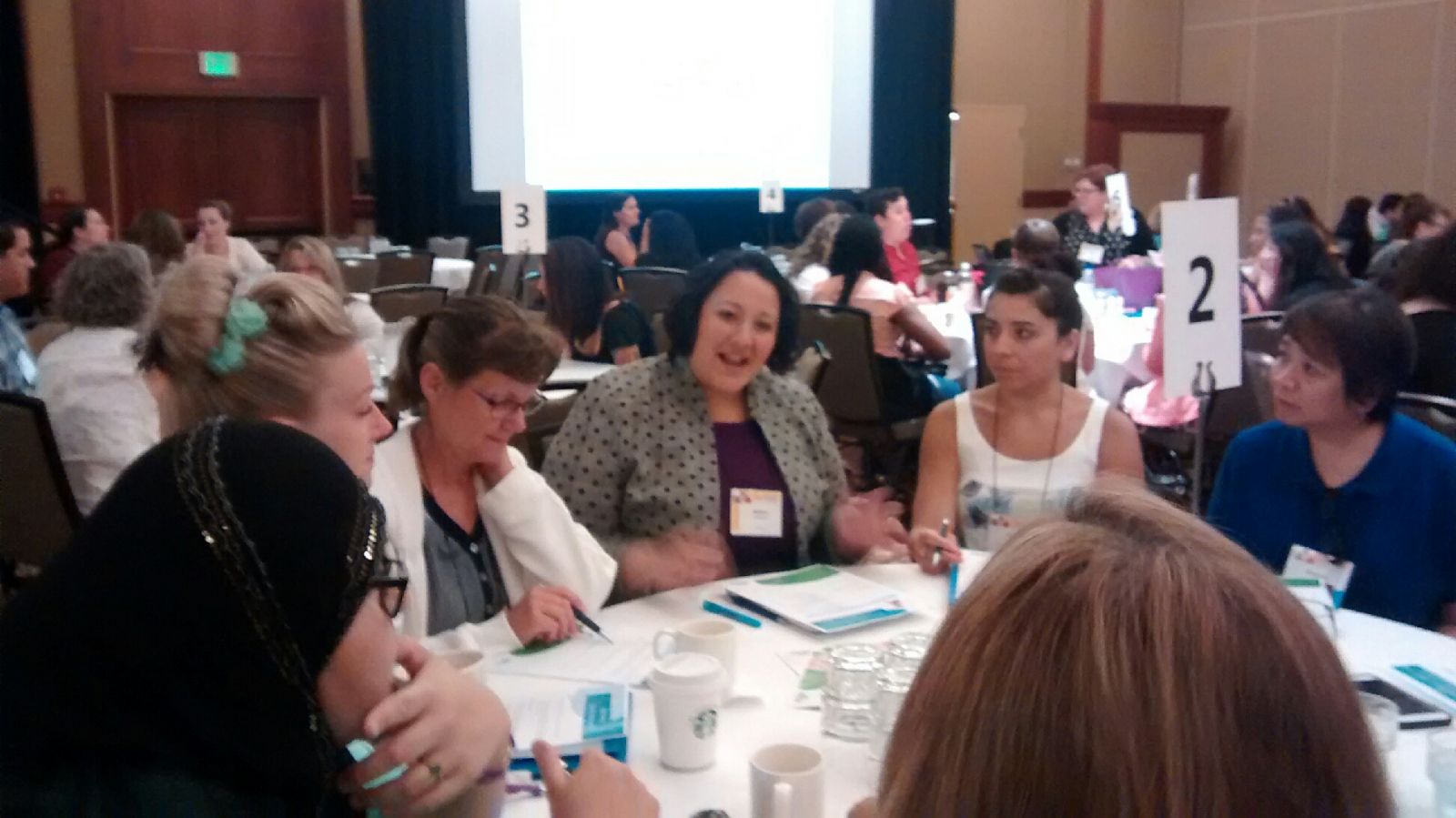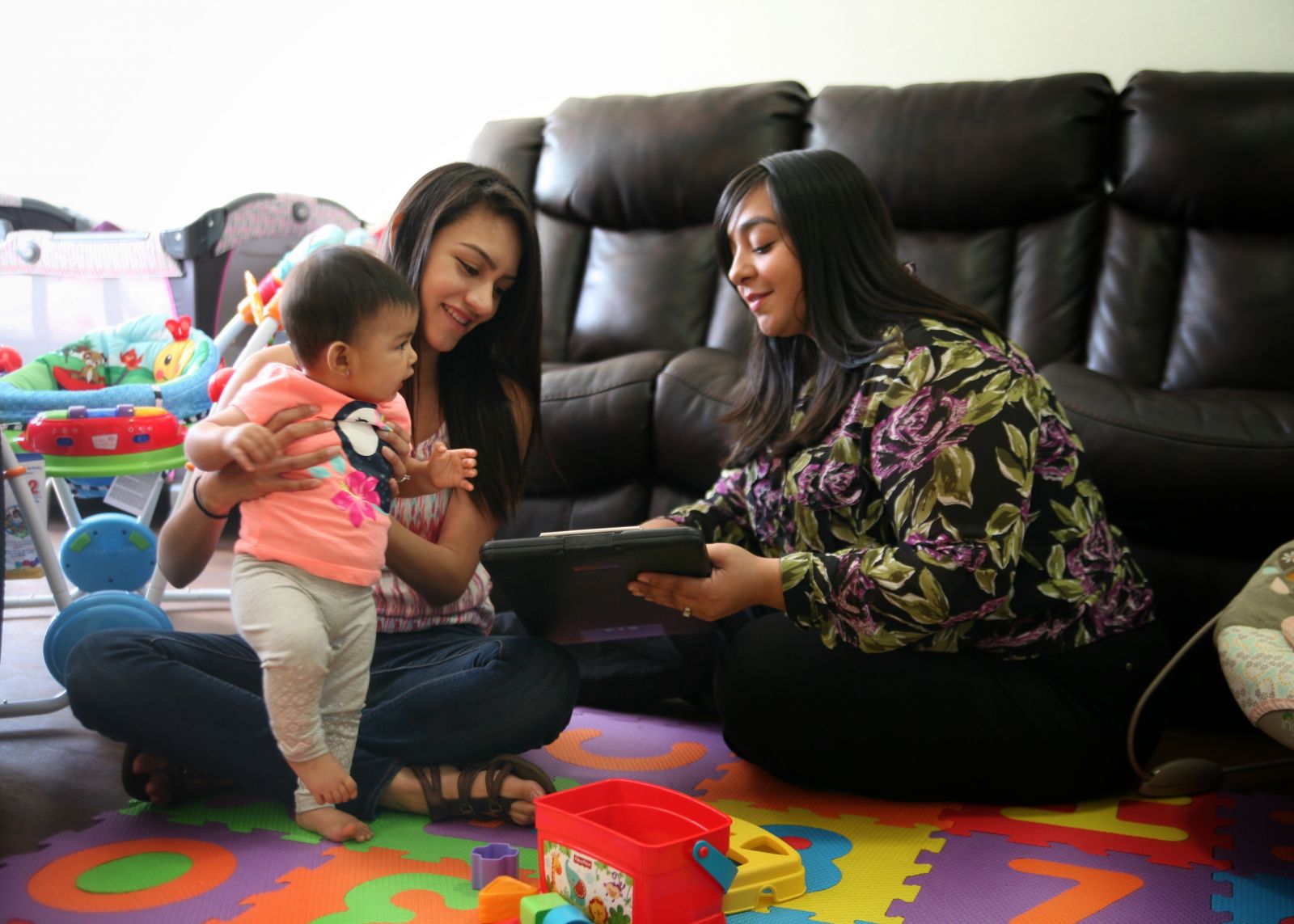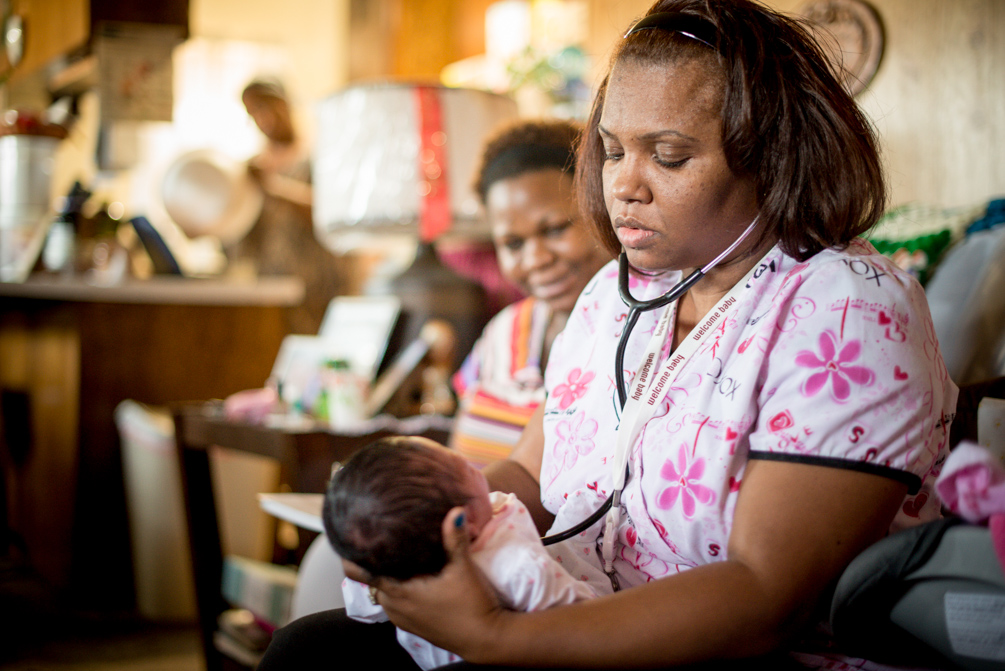
Welcome Baby provides an opportunity for parents to learn about their new role as mom or dad, early child development, and obtaining assistance on issues such as basic health care, insurance coverage, nutrition, breastfeeding, family violence, maternal depression, or improving home safety. The program is free, community-wide, voluntary, and universally provides hospital and home-based intervention for pregnant and postpartum women.
BACKGROUND
The Welcome Baby pilot program was launched in 2009 through Maternal and Child Health Access (MCHA) in partnership with California Hospital Medical Center, a member of Dignity Health’s system of hospitals.
PARTNERSHIP GOALS
The primary objective is to work with families to maximize the health, safety and security of the baby and parent-child relationship and to facilitate access to support and services when needed. Offered to all families regardless of income status, potential challenges or risk, Welcome Baby includes prenatal and postpartum home-based visits, as well as a hospital visit at the time of the child’s birth.
During pregnancy and throughout a baby’s first nine months, the program can include the following:
- An in-hospital visit where mothers receive assistance with breastfeeding and information about bonding and attachment, taking care of their baby, and resources the family may need as they transition into parenthood
- A personal Parent Coach who meets with the family in the comfort and convenience of their home
- Information and support on breastfeeding, home safety and other topics
- An in-home appointment with a nurse within the first few days after delivering at the hospital
- Referrals to additional resources to help the family
- Baby- and mom-friendly items such as thermometers, nursing pillows, toys and baby-proofing supplies for the home
KEY MILESTONES
Since its expansion in 2013 to a total of 14 hospitals, Welcome Baby has served more than 59,000 families as of June 2018.

All new moms need help and support to raise a healthy baby, but some moms need just a little more than others. Select Home Visiting is intended for moms who need more focused support in caring for themselves and their newborns.
BACKGROUND
First 5 LA began funding of the Healthy Families America (HFA) and Parents As Teachers (PAT) programs in 2014. The programs are able to work with families until the child is 5 years of age and provide weekly to biweekly contact in the first year of participation and afterwards as indicated by the family’s needs.
PARTNERSHIP GOALS
Home visitors provide personalized support and information to families during home visits, including:
- Positive parenting
- Child health and development
- Constructive play ideas
- Developmental screenings
- A resource network that links parents/caregivers to other community services
KEY MILESTONES
Welcome Baby began with one pilot site in 2009 with a partnership between California Hospital Medical Center and Maternal Child Health Access. Since its expansion starting in 2013 to a total of 14 hospitals, Welcome Baby has served over 59,000 families as of June 2018. Acknowledging that some families would require more focused and longer-term support, First 5 LA began funding of the HFA and PAT programs in 2014, enrolling over 3,000 families as of June 2018.
HOSPITALS ARE PARTICIPATING IN WELCOME BABY?
If you are pregnant and would like to participate in Welcome Baby, please visit the Welcome Baby Support website for information about how to find a participating hospital in your area.
Antelope Valley Health Partners, Lancaster, CA (661) 942-4719
Serving the Best Start Lancaster and Palmdale communities
California Hospital Medical Center, Los Angeles, CA (213) 342-3127
Serving the Best Start Metro LA community
Citrus Valley Medical Center – Queen of the Valley Campus, West Covina, CA (626)851-2749
Serving the Best Start El Monte/South El Monte community
Martin Luther King, Jr. Community Hospital, Los Angeles, CA (424)-338-8000
Miller Children’s and Women’s Hospital Long Beach, Long Beach, CA (562) 933-2410
Serving the Best Start Central Long Beach community
Providence Holy Cross Medical Center, Mission Hills, CA (818) 365-8051
Serving the Best Start Pacoima and Panorama City communities
St. Francis Medical Center, Lynwood, CA (310) 900-4710
Serving the Best Start Watts/Willowbrook, Compton, West Athens, Broadway/Manchester and South East LA communities
St. Mary Medical Center, Long Beach, CA (562) 491-4841
Serving the Best Start Central Long Beach, Compton and Wilmington communities
White Memorial Medical Center, Los Angeles, CA (323) 260-5712
Serving the Best Start East LA and South East LA County communities
WHICH HOSPITALS ARE PARTICIPATING IN SELECT HOME VISITING?
The eDirectory for L.A. County Home Visiting Programs helps expectant mothers and parents learn more about different programs available in their area, and which is the best fit for their needs. For more information on home visiting in L.A. County, visit: https://edirectory.homevisitingla.org/ or browse our list below.
Healthy Families America
Antelope Valley Partners for Health
(661) 942-4719
Serving the Best Start Lancaster and Palmdale communities
Child and Family Guidance Center
(661) 265-8627/ (818) 993-9311
Serving the Best Start Lancaster and Palmdale communities.
(562) 491-9100
Serving the Best Start Long Beach/Wilmington communities
(323) 766-2345
Serving the Best Start Broadway/Manchester and Compton communities
(562) 424-1886
Serving the Best Start Long Beach/Wilmington communities
(323) 242-5000
Serving the Best Start Broadway/Manchester, Compton, Watts/Willowbrook, and West Athens communities
(626) 442-1400
Serving the Best Start El Monte community
(323) 757-7244
Serving the Best Start Broadway/Manchester and Compton communities
Parents As Teachers
(818) 717-1000
Serving the Best Start Lancaster, Palmdale, Pacoima and Panorama City communities
(818) 830-3646
Serving the Best Start Watts/Willowbrooks, West Athens, Pacoima and Panorama City communities
(323) 242-5000
Serving the Best StartBroadway/Manchester, Compton, Watts/Willowbrook, and West Athens communities
(562) 692-0383
Serving the Best Start El Monte community
Program Approach Best Practices
- The program adheres to a set of principles that are clear and in writing.
- Services provided reflect the program’s principles as well as its mission, goals, and outcomes.
- Relationships are recognized as the cornerstone of home visiting services.
- Families are respected; the program identifies and builds on the family’s strengths.
- The program demonstrates flexibility, working to achieve program goals while at the same time addressing family-identified needs.
- The program empowers the family to be better able to meet its own needs.
- The program has a clear understanding of its “theory of change” that describes the impact of program services on families.
- The program uses interventions that have been proven effective based on theory, research, or outcomes measured by the program.
Staffing Best Practices
- Home visitors receive initial training on how to work with families and on the program principles, mission, goals, and outcomes.
- Home visitors are able to forge and maintain supportive but professional relationships with families.
- The home visitor understands and respects personal and professional boundaries.
- Home visitors receive ongoing training in their area of expertise (such as early literacy, child development, or family violence) and support.
- Home visitors receive structured ongoing supervision.
- Home visitors can describe the desired program outcomes including the specific positive outcomes anticipated to occur within the family, such as connection to local resources or improved mental health.
- Home visitors are competent in intervening with families to achieve the program’s goals and objectives.
- Home visitors are culturally competent and responsive to the backgrounds of the families served.
Program Structure Best Practices
- The program has a well-defined mission and goals that are in writing and are understood by staff and families.
- The program has a clearly defined target population in alignment with its mission and goals.
- The home visiting program is part of a system of services and provides access to a comprehensive array of services, either directly or through referrals.
- The program provides home visitors with access to a multidisciplinary team to confer on cases.
- The program works collaboratively and creatively to identify and stretch scarce resources to meet client needs.
- The program is flexible and evolves in response to changes in the community and system of services.
- Services are culturally competent and responsive to the backgrounds of the families served.
- Caseloads are a manageable size to allow for sufficient intensity and duration to achieve program goals.
- The program has an ongoing method of assuring the quality of its services.
- The program measures its impact on families in a variety of ways.
- Family input is sought for program development and improvement, and program improvement is responsive to family input and feedback.
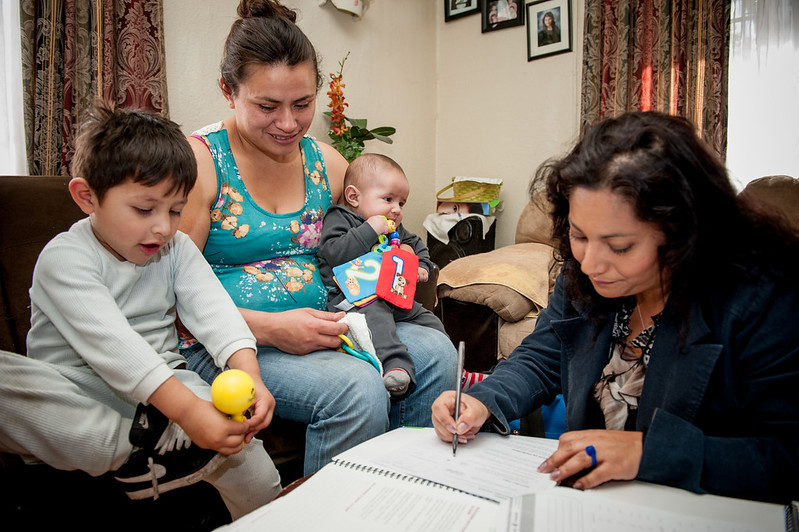
HOME VISITING SUSTAINABILITY EFFORTS
Sustainability is one of the most pressing challenges facing the network of home visiting programs in Los Angeles. In addition to the challenge of unmet community need, current funds cannot be sustained, particularly as First 5 LA funding continues to decline with the loss of tobacco revenue. Home visiting is First 5 LA’s most significant and long-standing investment.
In late 2016, the LA County Board of Supervisors passed a motion directing the Department of Public Health as the lead, along with First 5 LA, the Children’s Data Network, LA County Perinatal and Early Childhood Home Visiting Consortium, and every child and family serving county agency, to develop a plan to build a universal home visiting system in the County. This work culminated in a report, Strengthening Home Visiting in Los Angeles: A Plan to Improve Child, Family, and Community Well-being. A key goal of the plan is “to identify a framework to maximize resources by leveraging available funding, and where possible, identify new and existing, but not maximized, revenue streams to support home visiting expansion.” To this end, the motion planning workgroup continues to explore and assess opportunities to bring additional resources to support LA programs. Based on this work, the following key themes were recommended:
- Strengthen Policy and Systems For Home Visiting Services to Ensure Sustainability of Positive Outcomes for Families
- Fully Leverage and Maximize Available Sources (Federal, State, Local) of Funding by Building Partnerships Across County Agencies
- Identify New or Untapped Sources of Funding for Home Visiting
- Support Strategies that Have Broad Application for Home Visiting Providing Agencies
- Ensure Grantees are Provided Appropriate Training and Technical Assistance to Participate in Fund Leveraging, Minimizing Operational and Programmatic Impacts
This is a pivotal moment for home visiting in LA County. The Board motion catalyzed many exciting policy developments and revenue maximization strategies:
- The LA County Department of Mental Health committed $50 million over two years in Mental Health Services Act Prevention and Early Intervention funds to expand evidence-based home visiting services and address existing system gaps.
- The 2018 California budget includes $158 million in funding for home visiting for the first time ever via CalWORKS. A pilot funded by First 5 LA, in partnership with the Office Child Protection, DPSS and Shields for Families, which is currently providing home visiting services to DPSS clients, directly helped inform this policy change.
- First 5 LA and DPH are currently building the infrastructure for home visiting grantees to participate in Medicaid Targeted Case Management (TCM), to leverage significant federal reimbursement for the County. Recently, LA County has made the requisite policy adjustments to enable TCM participation by non-County entities including community-based organizations, such as F5LA home visiting grantees.
- Whole Person Care Medicaid Waiver– In LA County, the Department of Health Services is currently implementing the Whole Person Care waiver, which focuses on populations struggling with the highest risk factors, their care resulting in some of the highest costs to the system. DHS is currently piloting offering home visiting as a service to pregnant and post-natal women that fall in these categories.
- Finally, continued state and federal advocacy by First 5 LA and other partners to expand resources and support for home visiting in Los Angeles County.
March 9 Commission Meeting Summary
These Commission Summaries are intended to provide highlights of the First 5 LA Board of Commissioners’ actions to advance the outcome areas of First 5 LA’s 2015-2020 Strategic Plan. At the March 9 Commission meeting, highlights include approval of an extension of a...
First 5 LA Shares Expertise on Home Visiting, Family Leave
From statewide gatherings in Sacramento to local neighborhood talks in Eagle Rock, First 5 LA leaders spent the month of August sharing their expertise and learning from others about key issues affecting young children and their families. In Sacramento, First 5 LA...
A Most Welcome Visitor
June 14, 2016 When LaQuita went to a South...
Welcome Baby
Welcome Baby provides L.A. County pregnant women and new moms with information, support and a trusted partner to help you through the journey of pregnancy and early parenthood. This free and voluntary program from First 5 LA offers the following during pregnancy and...
Select Home Visitation models
(HFA) First 5 LA has invested in 11 organizations that implement the Healthy Families America home visiting model in the following Best Start communities: Broadway/Manchester; Compton; El Monte; Long Beach/Wilmington; Metro Los Angeles; Lancaster and Palmdale. WHO ARE...
